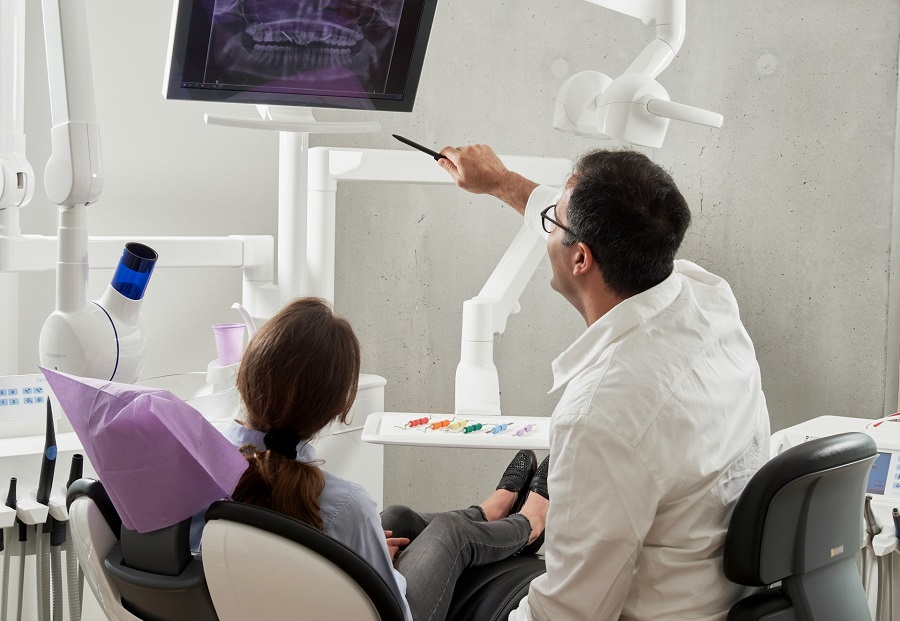Dental Negligence: Are you a victim?

Visiting the dentist is often an anxiety-inducing experience for many people. However, what happens when your trust in a dental professional is shattered due to negligent treatment? Dental negligence occurs when a dentist, orthodontist, or other dental healthcare provider fails to deliver an acceptable standard of care, resulting in unnecessary harm or injury to the patient. If you’ve experienced the consequences of dental negligence, don’t delay in seeking legal guidance and pursuing justice. You may have the right to seek compensation for your losses through a dental negligence claim. Take action now to protect your rights and explore your potential for rightful compensation.

Dental negligence refers to when a dentist’s negligent or substandard care causes harm to a patient, leading to potential legal claims for compensation. To learn more, read the following information.
What is dental negligence?
Dental negligence occurs when a dentist causes physical, psychological, or financial harm to a patient due to negligent, substandard, or improper care. In the UK, the terms “malpractice” and “negligence” are often used synonymously in this context.
What are the different types of dental negligence?
Dental negligence can take various forms, including
- Surgical errors, such as causing nerve damage during a procedure or failing to control bleeding or infection during surgery.
- Incorrect or unnecessary treatment, for instance extracting the wrong tooth or using outdated or improper techniques.
- Inadequate aftercare, for example failing to prescribe necessary antibiotics or pain medication or not providing proper instructions for post-procedure care.
- Failure to obtain informed consent, such as not fully explaining the risks and benefits of a procedure or neglecting to discuss alternative treatment options.
- Misdiagnosis or delayed diagnosis, including failing to identify oral cancer or other serious conditions or not recognizing signs of gum disease or tooth decay.
- Failures in cosmetic dentistry, for example using substandard materials for veneers, crowns, or implants or failing to match the colour or shape of restorations to the patient’s natural teeth.
What are the consequences of dental negligence?
Dental negligence can have significant and enduring consequences, leading to severe and prolonged impacts on individuals. Some of these repercussions include:
- Infections.
- Loss of teeth.
- Nerve damage.
- Psychological trauma.
- Chronic pain and discomfort.
How can you prove dental negligence?
To prove dental negligence, you must demonstrate that:
- The dentist owed you a duty of care, which meant that he had to provide you the kind of care and attention that a qualified dentist would have given in a comparable circumstance.
- They breached that duty of care by providing substandard treatment.
- You suffered harm as a direct result of their negligence.
Example: In a dental negligence claim involving gum disease, the dentist’s failure to diagnose and treat periodontal issues despite clear signs would be considered negligence. If this leads to the patient suffering tooth loss, bone deterioration, or other health problems, it demonstrates causation. The patient must prove both negligence and causation for a successful claim.
How can you make a dental negligence claim?
To make a dental negligence claim:
- Consult with a specialized dental negligence solicitor.
- Provide them with all relevant evidence and information.
- Your solicitor will assess the merits of your case.
- They will initiate the claims process on your behalf.
What compensation can you expect from a dental negligence claim?
Compensation for dental negligence can include:
- Loss of earnings due to time off work.
- Reimbursement for corrective treatment costs.
- Travel expenses incurred for medical appointments.
- Compensation for pain, suffering, and loss of amenity.
Compensation ranges for various injuries in dental negligence claims
If you’ve suffered harm due to dental negligence, you may be eligible for compensation depending on the type and severity of your injuries. Here are some common types of injuries and their associated compensation ranges:
- Multiple serious injuries with special damages: Compensation can reach up to £200,000 or more, covering pain, suffering, and financial losses like lost earnings.
- Severe facial scarring: Young claimants (teens to 30s) may receive £29,780 to £97,330 for highly disfiguring scars with severe psychological impact.
- Substantial facial scarring: Compensation ranges from £17,960 to £48,420 for significant disfigurement and psychological reaction.
- Significant facial scarring (reduced by surgery): If some cosmetic disability remains after surgical intervention, compensation may range from £9,110 to £30,090.
- Less significant scarring: Single visible scars or multiple small scars may warrant compensation between £3,950 and £13,740.
- Moderately severe psychiatric damage: Psychological harm impacting the ability to cope with life, education, and work may result in compensation ranging from £19,070 to £54,830.
- Chronic or significant tooth pain and deterioration: Sustained over several years, this type of injury may lead to compensation of up to £38,130.
- Serious damage or loss of several front teeth: Compensation for this type of injury typically falls between £8,730 and £11,410.
- Loss of taste: Impairment of taste sensation due to dental negligence may result in compensation ranging from £19,200 to £24,990.
The Periodontal Negligence: A Costly Oversight – Despite regular dental visits, V’s gum disease went undetected until it was too late. Her dentist failed to diagnose the advancing periodontal condition, leading to severe tooth loss and bone deterioration. An expert confirmed the dentist’s negligence, prompting a legal battle. Initially offered a paltry £20,000, V rejected it on counsel’s advice. After rigorous negotiations, a £45,000 settlement was reached – a hard-won victory, yet a stark reminder of the devastating consequences of overlooking oral health red flags. Dentists must remain vigilant to prevent such preventable tragedies.
Is there a time limit for filing a dental negligence claim?
If you believe you have suffered from dental negligence, it’s important to be aware of the time limits for making a claim:
- In most cases, you have 3 years to file a dental negligence claim. This time limit starts either from the date when the negligent treatment occurred or from the date when you first realized that negligence had taken place.
- If the negligence happened to a child, they have until their 21st birthday to make a claim, no matter when the negligent treatment occurred.
- For individuals who lack mental capacity, there is no time limit for filing a dental negligence claim.
Do I need a lawyer for a dental negligence claim?
Yes, it is advisable to seek the assistance of a lawyer for a dental negligence claim. Dental malpractice claims can be complex, requiring expert knowledge of legal and medical aspects. A lawyer specializing in dental negligence will navigate the legal process, gather evidence, consult with experts, negotiate on your behalf, and ensure your rights are protected, increasing the chances of a successful claim and fair compensation.
FAQs:
Why should you make a dental negligence claim? You should make a dental malpractice claim to seek compensation for any harm, injuries, or damages caused by the negligence or misconduct of a dental professional.
What happens during a dental malpractice claim? The claim typically involves filing a complaint, negotiating with the dentist or their insurance.
What if my dentist only accepts partial responsibility? In such cases, negotiations may take place to determine a fair settlement or the matter may proceed to court for a judgment.
Can I claim dental negligence compensation if I signed a waiver or consent form? Signing a waiver or consent form does not prevent you from making a dental negligence claim; it depends on the circumstances and the validity of the consent.
Can I use a dental negligence claim calculator? Yes, you can use a dental negligence claim calculator as a rough estimate, but it’s best to consult with a solicitor for an accurate assessment.
Take the first step towards justice and compensation for your dental claim. Access our comprehensive network of experienced solicitors, ready to fight for your rights. Don’t settle for less, consult today and ensure a strong legal representation on your side!
KEY TAKEAWAYS
- Different types of dental negligence include surgical errors, inadequate aftercare, misdiagnosis or delayed diagnosis, failure to obtain informed consent, incorrect or unnecessary treatment, and failures in cosmetic dentistry.
- Proving dental negligence requires establishing that a duty of care existed, it was breached, and harm resulted directly from the negligence.
- Making a dental negligence claim allows you to seek compensation for harm, injuries, or damages caused by dental professionals’ negligence.
- The process involves consulting with a specialized solicitor, providing evidence, assessing the merits of the case, and initiating the claims process.
- Compensation for dental negligence can include corrective treatment costs, pain and suffering, loss of earnings, and travel expenses for medical appointments.
- Seeking the assistance of a lawyer specializing in dental negligence is advisable for navigating the complex legal process and increasing the chances of a successful claim.
Do you need a solicitor?
Find a solicitor on Qredible in just a few easy steps
















